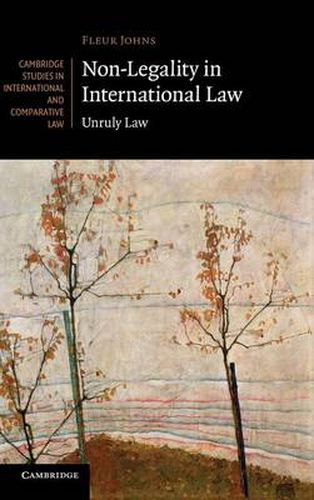Readings Newsletter
Become a Readings Member to make your shopping experience even easier.
Sign in or sign up for free!
You’re not far away from qualifying for FREE standard shipping within Australia
You’ve qualified for FREE standard shipping within Australia
The cart is loading…






International lawyers typically start with the legal. What is a legal as opposed to a political question? How should international law adapt to the unforeseen? These are the routes by which international lawyers typically reason. This book begins, instead, with the non-legal. In a series of case studies, Fleur Johns examines what international lawyers cast outside or against law - as extra-legal, illegal, pre-legal or otherwise non-legal - and how this comes to shape political possibility. Non-legality is not merely the remainder of regulatory action. It is a key structuring device of contemporary global order. Constructions of non-legality are pivotal to debate in areas ranging from torture to foreign investment and from climate change to natural disaster relief. Understandings of non-legality inform what international lawyers today do and what they refrain from doing. Tracing and potentially reimagining the non-legal in international legal work is, accordingly, both vital and pressing.
$9.00 standard shipping within Australia
FREE standard shipping within Australia for orders over $100.00
Express & International shipping calculated at checkout
International lawyers typically start with the legal. What is a legal as opposed to a political question? How should international law adapt to the unforeseen? These are the routes by which international lawyers typically reason. This book begins, instead, with the non-legal. In a series of case studies, Fleur Johns examines what international lawyers cast outside or against law - as extra-legal, illegal, pre-legal or otherwise non-legal - and how this comes to shape political possibility. Non-legality is not merely the remainder of regulatory action. It is a key structuring device of contemporary global order. Constructions of non-legality are pivotal to debate in areas ranging from torture to foreign investment and from climate change to natural disaster relief. Understandings of non-legality inform what international lawyers today do and what they refrain from doing. Tracing and potentially reimagining the non-legal in international legal work is, accordingly, both vital and pressing.